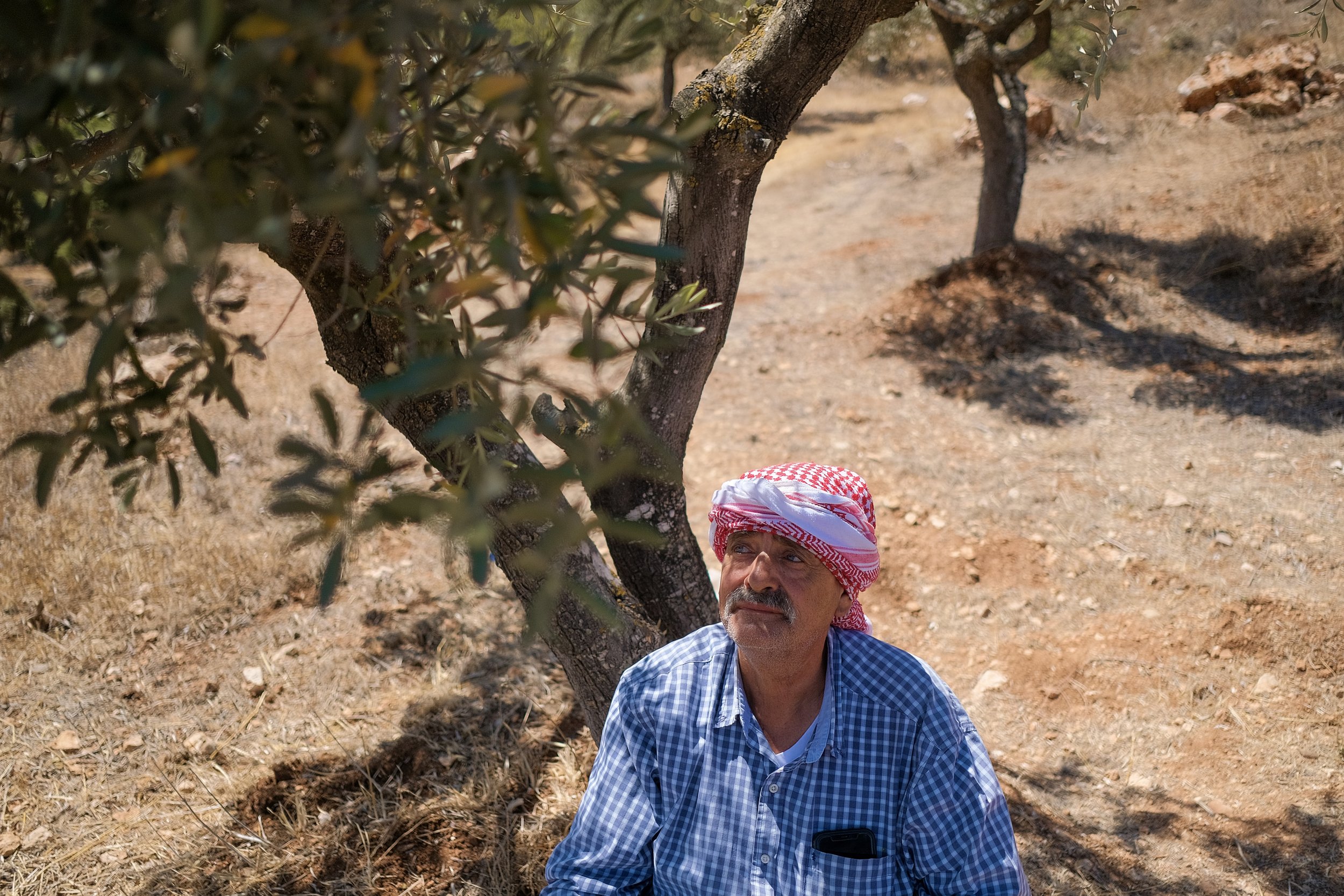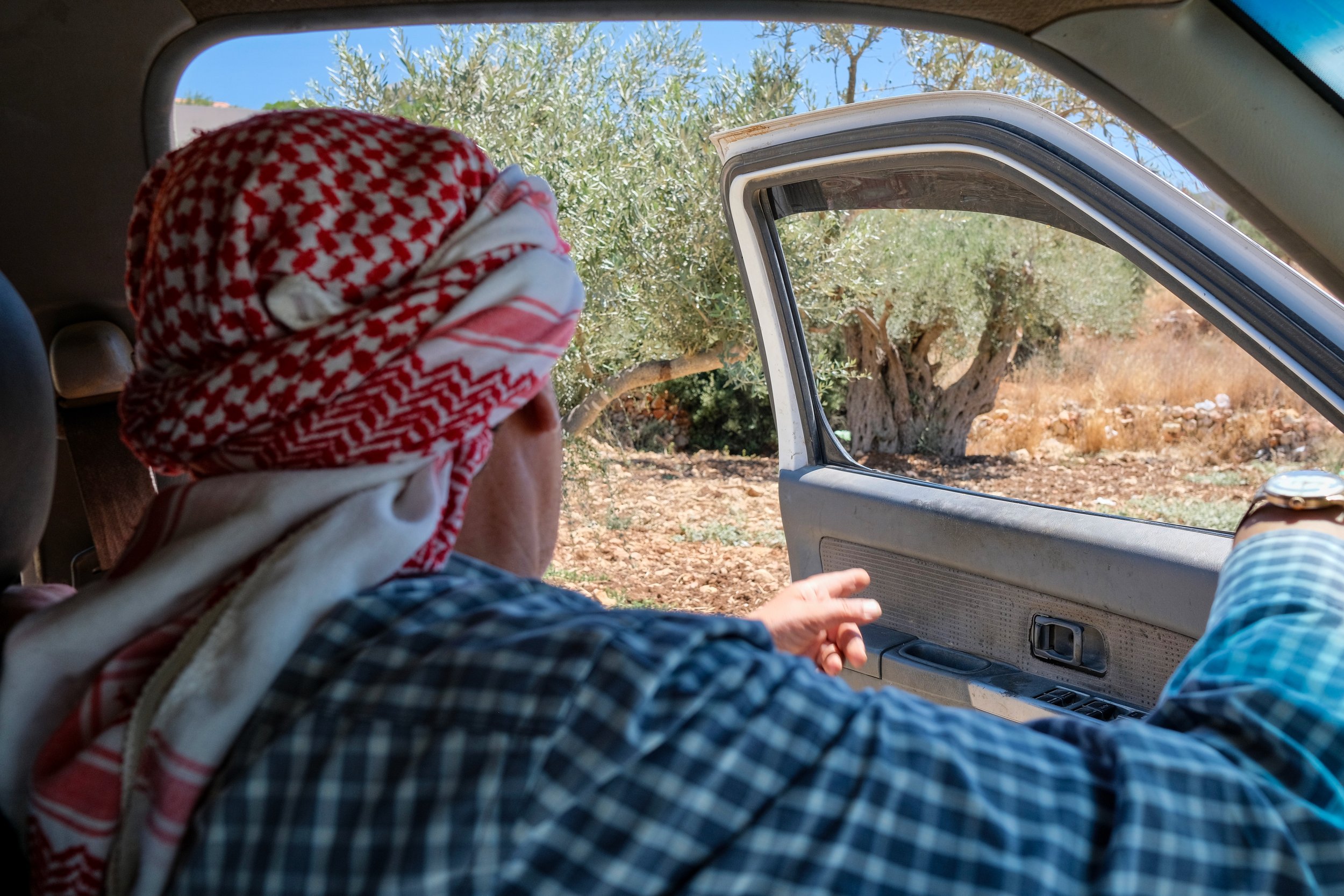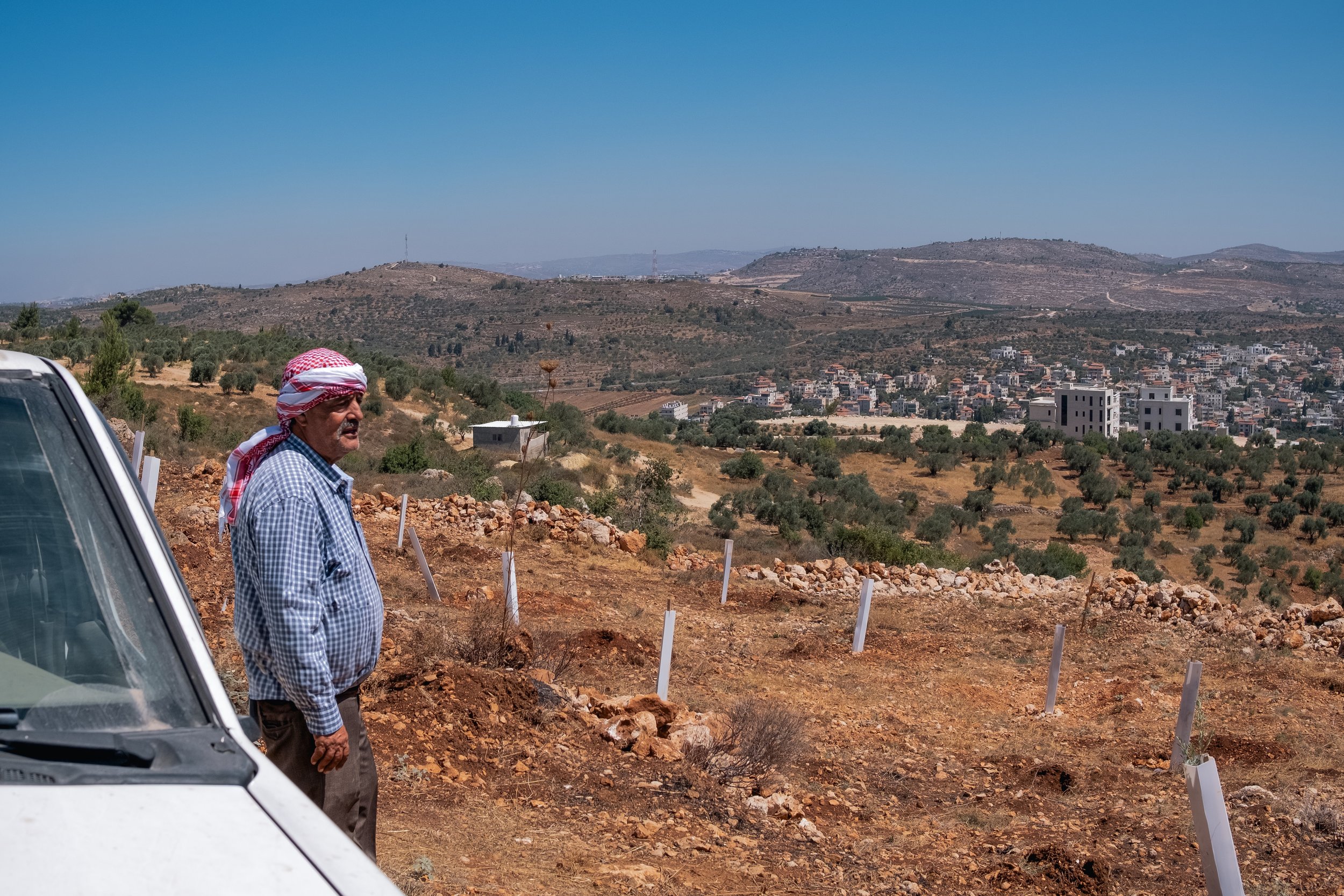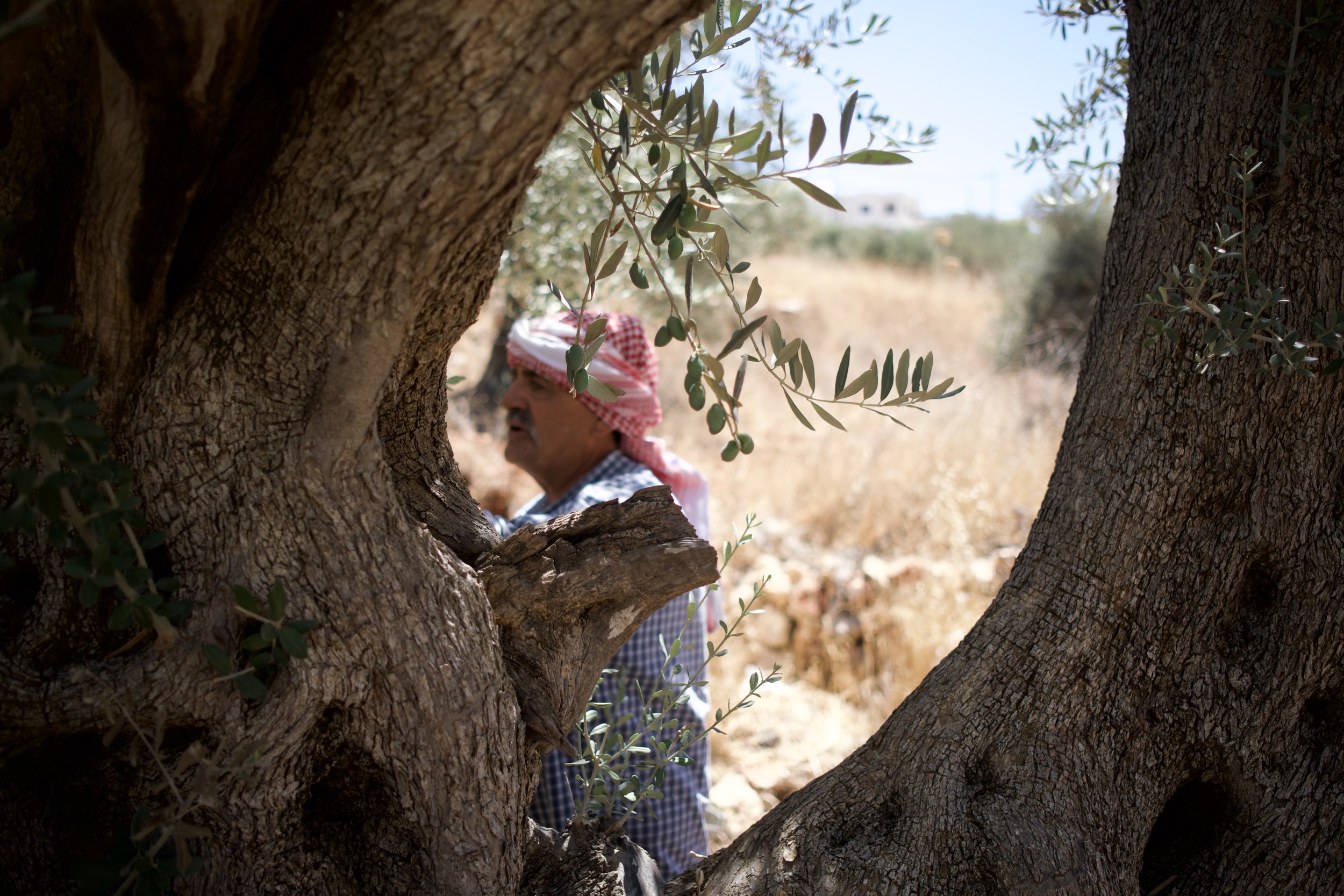Rooted in the Land: The Case of Turmus Ayya
Written by Jasmin
On 19th of July 2024 the ICJ ruled Israeli settlements illegal under international law. Turmus Ayya, a Palestinian village community North of Ramallah, is surrounded by these illegal settlements. The village has been a target of continuous attacks from settlers, cutting Palestinian farmers’ access to plow their olive trees. Nidal Rabie, a farmer from Turmus Ayya, has been farming these lands for generations.
Nidal Rabie under the shade of one of his olive trees in Turmus Ayya, located in Area B under the Oslo Accords. © Jasmin
“Even before 7th of October, reaching the furthest dunums (acres) of my land, it was a problem,” explains Nidal. Now it has become practically impossible. Nidal Rabie, the 62-year old villager, father of four, speaks of his trees with the same warmth he speaks of his sons and daughters. On a drive through the safer parts of his olive grove, we make multiple stops at different trees, some of them thick-trunked and furrowed with time, others young saplings still wrapped in protective material.
“Everything starts from the bottom up, from the land. That is why the land is so important for us,” says Nidal.
Where the climate is dry, plants and people adapt. Unlike some species of the tall pine trees—and certainly the eucalyptus tree—olive trees are an indigenous species to Palestine. They mature with decades of care and plowing, growing olives ready for harvest every October. Pine trees, on the other hand, grow fast and produce no fruit. JNF, the Jewish National Fund, plants around 300,000 trees annually, drawing criticism for planting in harmful monoculture and introducing foreign species on indigenous land. At the same time, many Palestinian farmers are unable to access their crops to care for them. This October, Nidal has little hope that he can manage to pick all the olives from his trees.
When asked about his favorite tree, Nidal has two candidates. The oldest tree on his land, gnarled and thick, is around 1000 years old. His other favorite is one he planted together with his father when he was just six years old. © Jasmin
When settlers see someone moving towards the settlement, they assume it is a threat, even when farmers are there just to care for their trees. Israeli settlers from nearby settlements, sometimes accompanied by soldiers, have a history of terrorising the villagers of Turmus Ayya. In 2023, 400 settlers stormed the village in a violent assault, firebombing cars and homes, burning the farmland, and opening live fire to residents – even killing 27 years old Omar Abu Qattin, father of two. By going on his land to prune his olive trees, Nidal risks being attacked or worse – killed.
Nidal Rabie drives us through the village, occasionally stopping the car to talk to people. “I know everyone here,” Nidal says, “everyone knows everybody.” © Jasmin
Driving down the central street of the village just North of Ramallah, Nidal gets out of breath pointing out all the houses that have been sabotaged by settlers, most recently last week. He recalls the attack in June 2023; “this house they burned once, this one they burned… this one got renovated just now after being burned.” Who pays for these repairs? “No one, it’s on us to fix what they destroy,” Nidal says.
Nidal overlooking an illegal Israeli settlement on a nearby hill, right by his village down the valley pictured. The newly planted olive tree saplings are wrapped in white cones for protection. © Jasmin
Even though International organisations provide support for farmers whose land is under threat of being annexed, it seems that settlers act with impunity, confident that they will not face legal sanctions for their violence. “The settlers don’t respect us Palestinians, but if they see a plaque of sponsors there, in international solidarity, there is a chance they hesitate to destroy that tree,” Nidal explains. It is evident that internationals coming to the West Bank have more rights than indigenous Palestinians. However, the true efficacy of protective presence, of donated trees, of international activists accompanying farmers to harvest olives is increasingly eroded by escalating violence around the West Bank. The shooting of a Turkish-American activist Aysenur Eygi who was providing protective presence at an anti-colony protest points that settlers, in conjunction with the IDF, are seemingly more confident in their impunity, testing the limits of their ramifications.
Many international operations have been hindered since the eruption of violence in Gaza and the West Bank. In the 2023-2024 period, the Joined Advocacy Initiative’s Olive Tree Campaign purchased and distributed over 88,000 olive trees across the West Bank despite challenges post October 7th. Most international exchanges, like the olive tree picking program and youth exchange were canceled due to the political unrest and the inability to travel to Palestine. Unfortunately, a few farmers, Nidal one of them, were unable to access the parts of their land to plant the donated saplings. © Jasmin
Olive tree grove in Turmus Ayya. The grey patch next to the road was burned down by settlers recently. © Jasmin
Nidal stops the car to look at the parts of his land facing one of the settlements, visible but not accessible. © Jasmin
“Everything starts from the bottom up, from the land. That is why the land is so important for us,” Nidal says – it’s essential in the struggle against occupation. Without the land there is nothing to build on, no olive trees to plow or footing to set on. For farmers like Nidal resistance is to stay with the land. While Nidal also has an American, Costa Rican, and Panaman passport–he could have left Palestine for a simpler place long ago—he chose to stay. “There is nothing that compares to this place, Palestine,” says Nidal.
Nidal pruning one of his olive trees. © Jasmin








